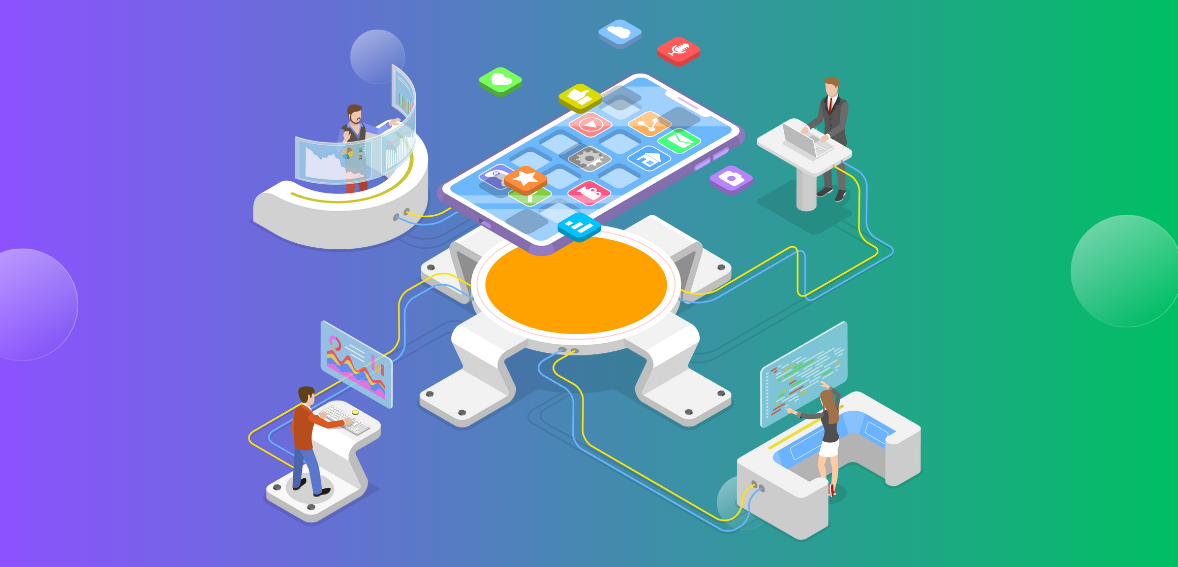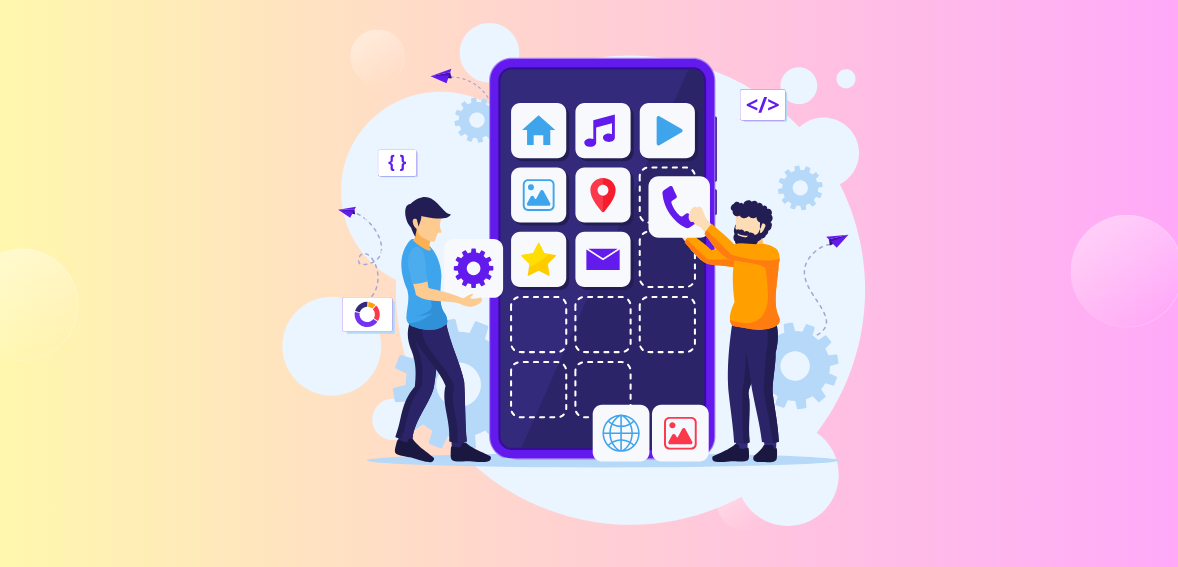The rapid advancement of technology has fundamentally transformed the landscape of mobile applications. Among the most significant drivers of this transformation are artificial intelligence (AI) and machine learning (ML). As we step into 2024, these technologies are no longer mere buzzwords but pivotal components of mobile app development. This article delves into the trends and best practices of integrating AI and machine learning in mobile apps, providing a comprehensive guide for developers, businesses, and tech enthusiasts.
The Evolution of AI in Mobile Apps
The journey of AI in mobile apps has been nothing short of revolutionary. From the early days of basic automation to the sophisticated, intelligent systems we see today, AI has continually pushed the boundaries of what is possible. Initially, AI was primarily used for simple tasks such as voice recognition and basic data analysis. However, with the exponential growth of computational power and data availability, AI capabilities have expanded dramatically. Today, AI in mobile apps encompasses complex functionalities like real-time language translation, advanced image recognition, and predictive analytics.
Benefits of Integrating AI in Mobile Apps
One of the primary benefits of integrating AI in mobile apps is the enhancement of user experience. AI algorithms can analyze user behavior and preferences to deliver highly personalized content and recommendations. For instance, streaming services like Netflix use AI to suggest movies and shows tailored to individual user tastes. Additionally, AI enhances efficiency by automating routine tasks, allowing users to focus on more important activities. Personalization, efficiency, and an overall improved user experience are just the tip of the iceberg when it comes to the benefits of AI in mobile apps.
Key AI Technologies in Mobile Apps
AI integration in mobile apps is facilitated by several key technologies. Machine learning, which enables apps to learn from data and improve over time, is at the forefront. Natural language processing (NLP) allows apps to understand and respond to human language, making interactions more intuitive. Computer vision, another critical technology, empowers apps to interpret and process visual information from the world, paving the way for applications like facial recognition and augmented reality.
Current Trends in AI and Machine Learning
As we move further into 2024, several trends are shaping the landscape of AI and machine learning in mobile apps. AI-powered chatbots are becoming increasingly sophisticated, providing users with seamless and efficient customer service. Predictive analytics is being used to anticipate user needs and behaviors, offering proactive solutions and recommendations. Voice assistants are also evolving, with improved accuracy and functionality, making them indispensable tools for users.
Best Practices for AI Integration
When integrating AI into mobile apps, several best practices can ensure success. Prioritizing data privacy is crucial, as AI systems often require large amounts of personal data. Ensuring seamless integration of AI features into the existing app ecosystem is essential for maintaining a smooth user experience. Furthermore, adopting a user-centric design approach can help create AI functionalities that genuinely enhance the user experience rather than complicate it.
Machine Learning Algorithms in Mobile Apps
Different types of machine learning algorithms play unique roles in mobile apps. Supervised learning algorithms, which learn from labeled data, are commonly used for tasks like image and speech recognition. Unsupervised learning algorithms, which work with unlabeled data, are useful for pattern detection and data clustering. Reinforcement learning, where algorithms learn by trial and error, is increasingly being used for developing more interactive and responsive applications.
The Role of Big Data in AI Mobile Apps
Big data is the lifeblood of AI and machine learning. The vast amounts of data collected from users provide the raw material for training AI models. Efficient data collection, processing, and real-time analytics are critical components of AI integration. This data-driven approach allows apps to deliver highly personalized experiences and make intelligent predictions.
Challenges in AI and Machine Learning Integration
Despite the numerous benefits, integrating AI and machine learning into mobile apps comes with challenges. Ensuring data security and privacy is a major concern, as AI systems handle sensitive information. High computational requirements for running AI algorithms can also be a barrier, especially for mobile devices with limited processing power. Building user trust in AI functionalities is another significant challenge that developers need to address.
Future Prospects of AI in Mobile Apps
Looking ahead, the future of AI in mobile apps promises even greater advancements. We can expect to see more advanced personalization, where apps predict and respond to user needs with unprecedented accuracy. Autonomous functionalities, such as self-driving cars controlled via mobile apps, are also on the horizon. Smart assistants will continue to evolve, becoming more intuitive and integrated into daily life.
Case Studies of Successful AI Integration
Examining case studies of successful AI integration can provide valuable insights. Companies like Google, Amazon, and Apple have set benchmarks with their AI-powered mobile apps. For instance, Google Maps uses AI to provide real-time traffic updates and route optimization, enhancing the user experience. Amazon’s Alexa app leverages AI for voice recognition and smart home control, showcasing the potential of AI in everyday life.
Impact of AI on Mobile App Monetization
AI is also transforming the monetization strategies of mobile apps. Personalized ads, powered by AI, deliver more relevant content to users, increasing engagement and conversion rates. Subscription models are enhanced with AI-driven recommendations, making them more appealing to users. In-app purchases are optimized through predictive analytics, identifying user preferences and suggesting relevant products or features.
User Privacy Concerns with AI
User privacy is a critical issue in the age of AI. Developers must implement robust data encryption and transparent policies to protect user data. Gaining user consent for data collection and clearly explaining how their data will be used can help build trust and ensure compliance with privacy regulations.
The Importance of User Feedback in AI
User feedback is invaluable for refining AI functionalities. By continuously collecting and analyzing feedback, developers can make iterative improvements, enhancing the app’s performance and user satisfaction. This approach ensures that AI-driven features remain relevant and effective.
Tools and Platforms for AI Integration
Several tools and platforms facilitate the integration of AI into mobile apps. TensorFlow and PyTorch are popular frameworks for building and deploying machine learning models. Apple’s Core ML allows developers to integrate trained machine learning models into iOS apps easily. These tools provide the necessary infrastructure for developing sophisticated AI functionalities.
The Intersection of AI and IoT in Mobile Apps
The integration of AI and the Internet of Things (IoT) is creating new opportunities for mobile apps. Smart homes, wearables, and connected devices are increasingly controlled via AI-powered mobile apps. This convergence enhances the functionality and convenience of IoT devices, offering users a seamless and integrated experience.
Ethical Considerations in AI Development
Ethical considerations are paramount in AI development. Addressing biases in AI algorithms, ensuring fairness, and maintaining transparency are critical to building trustworthy AI systems. Developers must strive to create AI applications that are ethical and beneficial to society.
AI in Mobile Gaming
AI is revolutionizing the mobile gaming industry. Adaptive gameplay, where the game adjusts its difficulty based on the player’s skill level, enhances user engagement. Realistic non-player characters (NPCs) and enhanced graphics, powered by AI, create more immersive gaming experiences.
Voice Recognition Technologies
Voice recognition technologies like Siri, Google Assistant, and Alexa have become integral parts of mobile apps. These technologies enable hands-free operation and provide users with intuitive and efficient ways to interact with their devices.
AI for Accessibility in Mobile Apps
AI is also playing a crucial role in making mobile apps more accessible. Voice commands, visual recognition, and predictive text functionalities help users with disabilities interact with their devices more effectively, promoting inclusivity.
Continuous Learning and AI
Continuous learning is a vital aspect of AI development. By regularly updating AI models based on user behavior and feedback, developers can ensure that their applications remain relevant and effective. This process of continuous improvement is key to the success of AI-driven mobile apps.
Role of AI in Mobile App Security
AI enhances mobile app security through features like fraud detection, authentication, and real-time threat analysis. By analyzing patterns and identifying anomalies, AI systems can proactively protect users from security threats.
AI and Augmented Reality (AR) in Mobile Apps
The combination of AI and augmented reality (AR) is creating new possibilities for mobile apps. Enhanced visuals and interactive experiences, powered by AI, are transforming sectors like retail, gaming, and education.
AI-Driven Customer Support in Apps
AI-driven customer support is becoming increasingly common in mobile apps. Chatbots and virtual assistants provide users with quick and efficient solutions to their queries, enhancing the overall customer experience.
Developing AI Skills for Mobile App Developers
For mobile app developers, acquiring AI skills is becoming increasingly important. Numerous educational resources and training programs are available to help developers learn AI and machine learning techniques, enabling them to create innovative applications.
Regulatory Landscape for AI in Mobile Apps
Navigating the regulatory landscape is essential for developers integrating AI into mobile apps. Compliance with data protection laws and industry standards is critical to ensuring the legality and ethicality of AI applications.
AI and Machine Learning Libraries
Libraries like Scikit-learn, Keras, and OpenAI provide essential tools for developing AI and machine learning models. These libraries offer pre-built functions and algorithms, simplifying the development process and enabling developers to focus on innovation.
Collaborations and Partnerships in AI
Collaborations and partnerships between tech giants, startups, and academic institutions are driving advancements in AI. These collaborations foster innovation, leading to the development of cutting-edge AI technologies and applications.
Measuring the Success of AI in Mobile Apps
Measuring the success of AI integration in mobile apps involves tracking key performance indicators (KPIs), user engagement, and return on investment (ROI). These metrics help developers assess the effectiveness of AI functionalities and identify areas for improvement.
Conclusion
The integration of AI and machine learning in mobile apps is revolutionizing the tech industry. By leveraging the latest trends and best practices, developers can create innovative and user-centric applications that enhance user experience, drive engagement, and foster growth. As we move forward, the potential for AI in mobile apps is limitless, promising a future of unprecedented technological advancement and convenience.
FAQs
How does AI improve user experience in mobile apps?
AI enhances user experience by providing personalized content, automating routine tasks, and offering intelligent recommendations based on user behavior and preferences.
What are the key technologies used in AI-powered mobile apps?
Key technologies include machine learning, natural language processing (NLP), and computer vision, which enable apps to learn from data, understand human language, and interpret visual information.
What are the challenges of integrating AI into mobile apps?
Challenges include ensuring data security and privacy, managing high computational requirements, and building user trust in AI functionalities.
How does AI contribute to mobile app monetization?
AI contributes by enabling personalized ads, optimizing subscription models, and enhancing in-app purchases through predictive analytics.
What role does user feedback play in AI development?
User feedback is crucial for iterative improvement, helping developers refine AI functionalities and enhance the overall user experience.
What tools are available for integrating AI into mobile apps?
Popular tools and platforms include TensorFlow, PyTorch, and Core ML, which provide the necessary infrastructure for developing and deploying AI models.




